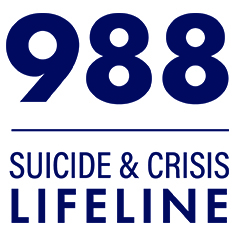The Tennessee Department of Mental Health and Substance Abuse Services (TDMHSAS) proposes Tennessee Lives Count-Connect (Connect) to reduce suicidal ideation, suicide attempts, and deaths among youth and young adults ages 10-24 by developing and implementing statewide suicide prevention and early intervention strategies, risk screening/assessment, and enhanced follow-up for 6,250 unduplicated (Year 1: 1,000; Years 2-5: 1,250/year).
The focus area is the State of Tennessee, comprising urban and rural populations with multiple socioeconomic disparities (e.g., high poverty, unemployment) that contribute to high risk for suicidal ideation/behaviors among youth/young adults. Tennessee?s suicide rate for the focus population (8.83) exceeds the national rate (7.57) and 111 young Tennesseans died by suicide in 2010. Among the focus population, 20% experience serious psychological distress; 8% of adolescents ages 12-17 and 11% of 18-25 year olds have had a major depressive episode; and 7% of adolescents, 4% of 18-20 year olds, and 16% of 21-25 year olds have been admitted for substance abuse treatment ? all risk factors closely associated with youth suicide. Risk factors are exacerbated among subpopulations (children in state custody, juvenile justice involvement, veterans, and LGBTQ2S youth), with 50% having mental health and/or substance use disorders. Locally, suicide prevention, intervention, and follow-up resources are sparse and disjointed, and accessibility creates key service gaps for youth/young adults and their families.
TDMHSAS will partner with Tennessee Suicide Prevention Network and Centerstone of Tennessee to provide suicide prevention and postvention trainings for gatekeepers (schools, law enforcement, foster care, etc.) and training for primary/behavioral health professionals, screening/assessment, early intervention, follow-up, outreach/education, and linkages to treatment services, using the evidence-based Applied Suicide Intervention Skills Training (ASIST) and Columbia Suicide Severity Rating Scale (C-SSRS) models. Connect will also strengthen public/private collaborations and support higher learning institutions to train students in recognizing early signs of suicide and referring individuals needing help. Outcomes will include reduction in suicidal ideation and suicide attempts by 30% and suicide deaths by 10%. A Youth Advisory Council comprising stakeholders and focus population members will support Connect goals/objectives: (1) increasing the number of people in youth-serving organizations trained to identify/refer youth at risk of suicide, (2) increasing the number of clinical services providers/first responders trained to assess, manage, and treat risk for suicide, (3) improving continuity of care and follow-up for youth discharged from emergency/ psychiatric units, (4) increasing risk identification, referral, and behavioral health services utilization, and (5) increasing the promotion and utilization of the National Suicide Prevention Lifeline. Evaluation will report as required on participant outcomes and on progress and performance regarding infrastructure development.
